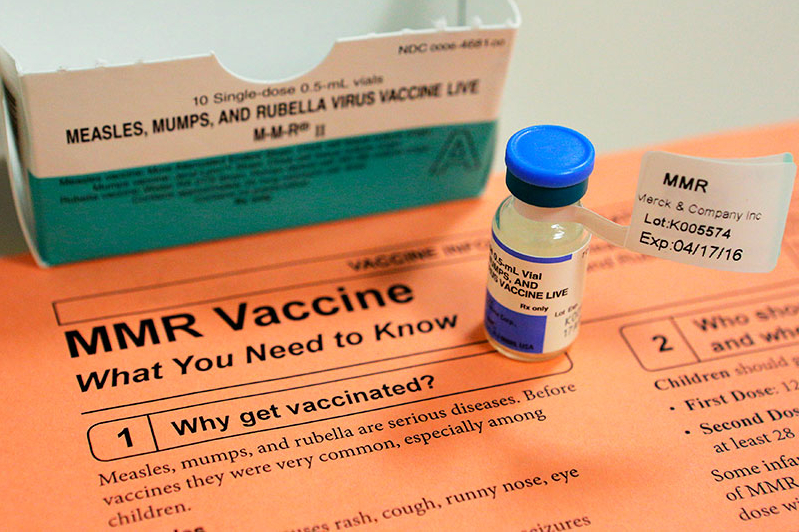
The state of California approved a bill on Thursday that would force most residents to vaccinate their children. It now will go to Gov. Jerry Brown, who is expected to sign the bill into law.
According to Tracy Seipel and Jessica Calefati of San Jose Mercury News, California Senate Bill 277 would mandate vaccines for all schoolchildren regardless of their parents' personal or religious beliefs. If signed into law, only medical exemptions would be treated as a legitimate reason to sidestep vaccinations.
"If you allow people to get a religious exemption, then everyone who opposes the bill will get one," said Barbara O'Connor, director emeritus of the Institute for the Study of Politics and Media at Sacramento State.
O'Connor, who has known Brown for four decades, thought that the governor would be unable to add a religious exemption clause like he did last time. According to San Jose Mercury News, the former Jesuit seminarian tweaked a vaccine bill back in 2012 to allow for religious exemptions.
"I think the legislative analyst would say that's not a minor modification," O'Connor said. "It changes the totality of the law."
O'Connor added that Brown was an "intellectual Catholic" based on his Jesuit background. Dorit Rubinstein Reiss, a UC Hastings expert on public law, also thought Brown lacked the legal power to alter the approved bill before signing it into law.
"The governor doesn't have the authority to make this sort of change on his own. He simply doesn't," Reiss said. "If someone had taken him to court, that clause could have been ruled unconstitutional."
Seipel and Calefati reported that under the previous vaccine bill passed in 2012, parents had to meet with a health care professional first if they wanted to exempt their children from vaccinations.
"Brown then directed the state Department of Public Health to allow people 'whose religious beliefs preclude vaccinations' to avoid requirements to get a health care practitioner's signature," Seipel and Calefati wrote, citing the clause that Reiss thought was unconstitutional.
According to Sarah Kaplan of the Washington Post, any parents who opted out of mandatory vaccination schedules under the new law would have to homeschool their children. The only exemption to the law would apply to children with serious health problems, such as a compromised immune system.
"The governor believes that vaccinations are profoundly important and a major public health benefit, and any bill that reaches his desk will be closely considered," Evan Westrup, Brown's spokesman, said.
Kaplan reported that under current law, many people in California who opt out of the mandatory vaccinations cited "personal belief exemptions" instead of religious reasons. She pointed out that the anti-vaccination movement has a foothold in some parts of California.
"Though decades of studies have found vaccines to be safe, strains of vaccine skepticism are particularly high in some California communities," Kaplan wrote. "In some school districts the fraction of kindergartners with PBES is more than half. At a handful of private schools it topped 75 percent."
Political science professor Jack Pitney of Claremont College told Seipel and Calafati that based on Brown's track record on this issue, it's hard to predict if the governor will sign the new vaccine bill into law as is.
"He knows the science. I've tracked his statements over the years on various issues, and he is aware of the need for vaccinations -- he knows how measles spreads," Pitney said. "The question is whether he sees this as an example of religious freedom."
According to the Washington Post, 32 states prohibited vaccination exemptions based on personal or moral beliefs. If Brown signs the vaccine bill into law, California would join West Virginia and Mississippi as the only states "to deny exemptions based on religious convictions."







